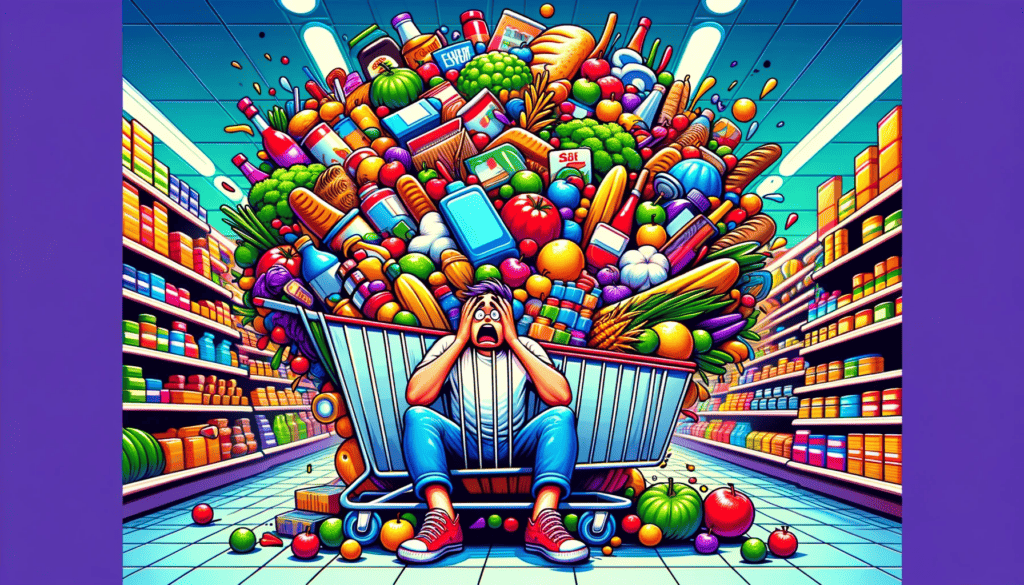
The Temptation of Impulse Buys
The Lure of Snacks and Treats
When you’re hungry and walking through the grocery aisles, your stomach, not your brain, often takes the lead. This can result in grabbing snacks and treats that you normally wouldn’t buy. These items not only add to your bill but can also be unhealthy choices.
Overspending on Unnecessary Items
Hunger can cloud your judgment, leading to purchasing items that seem appealing at the moment but are not actually needed. This results in spending more money on things that might end up unused or wasted.
Impact on Diet and Health
Choosing Less Nutritious Options
Shopping while hungry often leads to choosing foods high in calories, sugar, and fat. These choices can negatively impact your diet and overall health, especially if they become a regular part of your grocery shopping routine.
Long-Term Health Effects
Regularly buying unhealthy foods can contribute to long-term health issues like obesity, diabetes, and heart disease. It’s important to shop with a clear mind to make healthier food choices.
Psychological Factors
Stress and Anxiety in Decision Making
Being hungry can increase stress and anxiety levels, making it harder to make thoughtful decisions about what to buy. This can lead to less satisfaction with your purchases and regret later.
The Role of Hunger in Impulsiveness
Hunger triggers a primal need for immediate gratification, which can lead to impulsive buying. These decisions are often not aligned with your actual needs or budget.
Financial Implications
The Cost of Impulse Shopping
Impulse purchases, especially when hungry, can significantly increase your grocery bill. These extra costs add up over time, impacting your budget and financial goals.
Long-Term Financial Consequences
Frequent impulse buys can lead to financial strain. Consistently spending more on groceries than planned can disrupt your financial stability and savings plans.
Time Management and Efficiency
Shopping Efficiency
Shopping while hungry can slow you down, as you might spend more time pondering over choices or being distracted by hunger pangs. This makes your shopping trip less efficient.
Planning and Organization
Going grocery shopping on an empty stomach often leads to a lack of focus, making it difficult to stick to a shopping list or plan. This disorganization can waste time and lead to repeat trips for forgotten items.
Environmental and Social Considerations
Food Waste
Impulse buys can result in purchasing more food than you can consume before it spoils, leading to increased food waste, which is an environmental concern.
The Social Impact of Unhealthy Choices
The choices you make in the grocery store can influence those around you, especially if you have a family. Unhealthy food choices can set a poor example for children and contribute to unhealthy eating habits in your household.
Better Alternatives to Consider
Eat a Small Snack Before Shopping
Having a small, healthy snack before heading to the grocery store can curb hunger and help you make better choices.
Create and Stick to a Shopping List
Planning your shopping and sticking to a list can help you avoid impulse buys and ensure you purchase what you need.
Consider Online Grocery Shopping
Online grocery shopping can reduce the temptation of impulse buys, as you’re less influenced by hunger when clicking through a website.
Educate Yourself on Healthy Choices
Learning about healthy food options and planning your meals can help you resist the temptation to buy unhealthy items.
Shopping on an empty stomach can lead to various negative outcomes, from unhealthy eating habits to financial strain. By understanding these risks and implementing better shopping habits, you can make more thoughtful and beneficial choices for your health, wallet, and lifestyle.






Leave a Reply